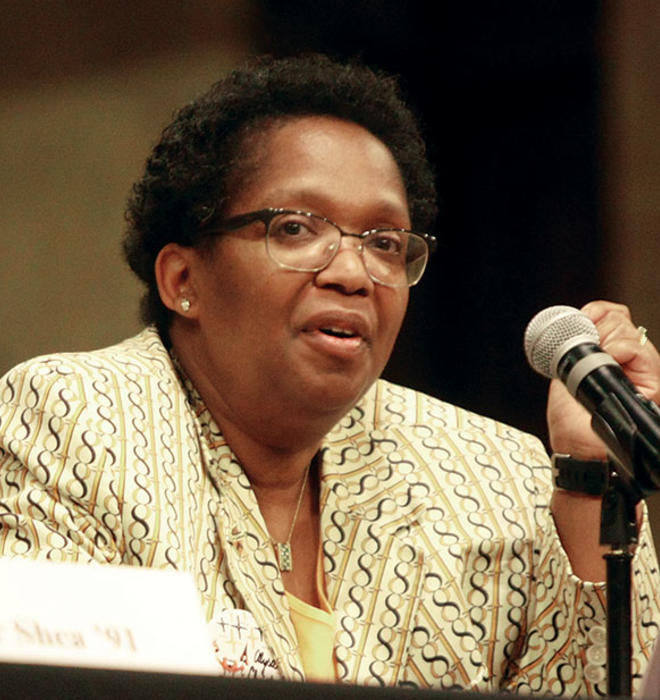
Reunions Panel: Free Speech
Discussing the free-speech debates that have roiled campuses across the country, including Princeton, two attorneys — each of whom works for a university — disagreed on whether speech should be limited. But they agreed that efforts to resolve the issue will take place largely outside the legal arena, as colleges grapple with the question of what kind of institutions they hope to be.
Alysa Christmas Rollock ’81, vice president for ethics and compliance at Purdue University, suggested that universities should “model free discussion,” recognizing that civil disobedience — and accepting responsibility for the consequences — is part of that discussion. Even anonymous speech should be protected, she said, saying that limits would curtail not just hate speech, but speech by powerless people who may be unable to express themselves openly.
Jerry Blakemore ’76, vice president and general counsel at Northern Illinois University — who as a student protested a Princeton lecture by physicist William Shockley because of his racist views — favored greater regulation of campus speech because hate speech can result in harm, he said. As a student, he felt speech should be restricted; as a university counsel, he explained, he must follow laws he believes should be changed, even if they permit hate speech. But “this is one of those areas where I think change is occurring,” he said. “We need to look at where we draw the line.”
Other panelists were journalist Christopher Shea ’91, who wrote about the issue for PAW (“Can We Say That?” Nov. 11, 2015); and Jeanne Laymon ’11, program coordinator in the Office of the Dean of Undergraduate Students at Princeton. Asked whether the panelists represented the full range of opinions on campus speech, Shea said he regretted that they did not: There were no “free-speech absolutists” on the stage.







No responses yet